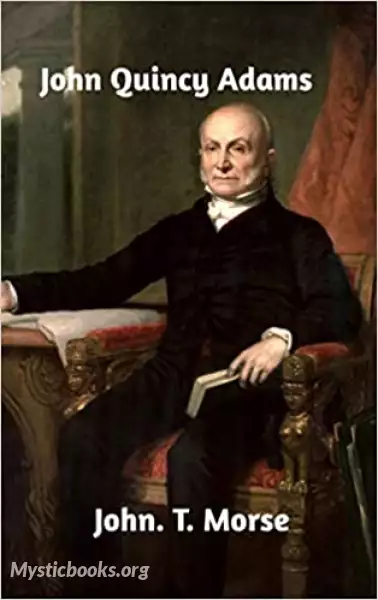
John Quincy Adams
'John Quincy Adams ' Summary
John Quincy Adams was an American statesman, diplomat, lawyer, and diarist, who served as the 6th president of the United States from 1825 to 1829. He previously served as the 8th United States Secretary of State from 1817 to 1825. During his long diplomatic and political career, Adams also served as an ambassador, and as a member of the United States Senate and House of Representatives representing Massachusetts. He was the eldest son of John Adams, who served as the second U.S. president from 1797 to 1801, and First Lady Abigail Adams. Initially a Federalist like his father, he won election to the presidency as a member of the Democratic-Republican Party, and in the mid-1830s became affiliated with the Whig Party.
Born in Braintree, Massachusetts Adams spent much of his youth in Europe, where his father served as a diplomat. After returning to the United States, Adams established a successful legal practice in Boston. In 1794, President George Washington appointed Adams as the U.S. ambassador to the Netherlands, and Adams would serve in high-ranking diplomatic posts until 1801, when Thomas Jefferson took office as president. Federalist leaders in Massachusetts arranged for Adams's election to the United States Senate in 1802, but Adams broke with the Federalist Party over foreign policy and was denied re-election. In 1809, President James Madison, a member of the Democratic-Republican Party, appointed Adams as the U.S. ambassador to Russia. Adams held diplomatic posts for the duration of Madison's presidency, and he served as part of the American delegation that negotiated an end to the War of 1812. In 1817, President James Monroe selected Adams as his Secretary of State. In that role, Adams negotiated the Adams–Onís Treaty, which provided for the American acquisition of Florida. He also helped formulate the Monroe Doctrine, which became a key tenet of U.S. foreign policy. In 1818, Adams was elected a member of the American Philosophical Society in Philadelphia.
Adams, Andrew Jackson, William H. Crawford, and Henry Clay all members of the Democratic-Republican Party competed in the 1824 presidential election. Because no candidate won a majority of electoral votes, the House of Representatives held a contingent election, which Adams won with the support of Speaker of the House Clay, whom Adams would go on to controversially appoint as his Secretary of State. As president, Adams called for an ambitious agenda that included federally funded infrastructure projects, the establishment of a national university, and engagement with the countries of Latin America, but Congress refused to pass many of his initiatives. During Adams's presidency, the Democratic-Republican Party split into two major camps: the National Republican Party, which supported President Adams, and Andrew Jackson's Democratic Party. The Democrats proved to be more effective political organizers than Adams and his National Republican supporters, and Jackson soundly defeated Adams in the 1828 presidential election, making Adams the second president after his father to fail to win re-election.
Rather than retiring from public service, Adams won election to the House of Representatives, where he would serve from 1831 until his death in 1848. He remains the only ex-president to be elected to the chamber. After narrowly losing his bids for Governor of Massachusetts and Senate re-election, Adams joined the Anti-Masonic Party in the early 1830s before joining the Whig Party, which united those opposed to President Jackson. During his time in Congress, Adams became increasingly critical of slavery and of the Southern leaders who he believed controlled the Democratic Party. He was particularly opposed to the annexation of Texas and the Mexican–American War, which he saw as a war to extend slavery and its political grip on Congress. He also led the repeal of the "gag rule", which had prevented the House of Representatives from debating petitions to abolish slavery. Historians concur that Adams was one of the greatest diplomats and secretaries of state in American history; they typically rank him as an average president, as he had an ambitious agenda but could not get it passed by Congress.
Book Details
Language
EnglishOriginal Language
EnglishPublished In
1882Genre/Category
Tags/Keywords
Authors
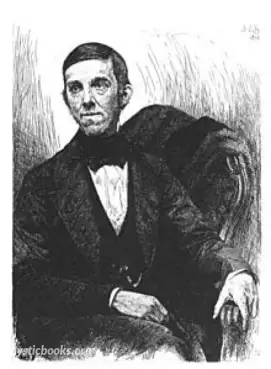
John T. Morse
United States
John Torrey Morse was an American historian and biographer. He was born in Boston, Massachusetts on January 9, 1840, and lived in that city as a lawyer. Morse was the editor of the American Statesmen...
Books by John T. MorseDownload eBooks
Listen/Download Audiobook
- Select Speed
Related books

William the Third by Henry Duff Traill
This is a captivating biography that provides an insightful exploration of the life and reign of one of England's most significant monarchs. This enga...

The Underground Railroad, Part 1 by William Still
For most of the years I have lived, the escape of fugitives from slavery, and their efforts to baffle the human and other bloodhounds who tracked them...

Famous Impostors by Bram Stoker
This book consists of short biographical sketches of a number of different historical imposters along with a chapter on hoaxes.
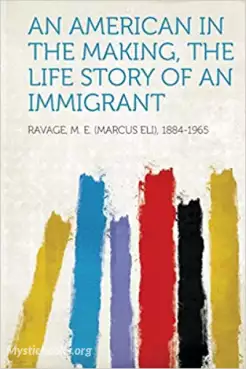
An American in the Making by Marcus Eli Ravage
“The sweat-shop was for me the cradle of liberty. It was my first university.” Attending lectures and the New York theatre at night; by day sewing sle...

World’s Famous Orations, Vol. IV: Great Britain - II by William Jennings Bryan
This volume, part of a larger collection of famous orations, focuses on speeches delivered by British figures between 1781 and the mid-19th century. T...

Il Principe by Niccolò Machiavelli
Il Principe è un trattato politico scritto da Niccolò Machiavelli nel 1513. L'opera esplora le caratteristiche dei principati e i metodi per mantenerl...
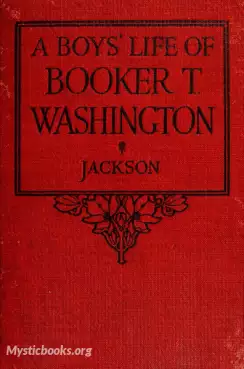
A Boys' Life of Booker T. Washington by Walter Clinton Jackson
"The single aim in telling the story that follows is to interest boys in the life of Booker T. Washington. "This man's life was of such singular and v...

The Underground Railroad, Part 2 by William Still
The Underground Railroad was a network of secret routes and safe houses established in the United States during the early- to mid-19th century. It was...

Life of Viscount Palmerston by Lloyd Charles Sanders
This biography offers a comprehensive account of the life and career of Henry John Temple, Viscount Palmerston, a prominent figure in British politics...
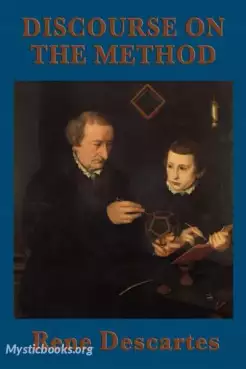
Discourse on the Method of Rightly Conducting One's Reason and of Seeking Truth in the Sciences by René Descartes
Discourse on the Method of Rightly Conducting One's Reason and of Seeking Truth in the Sciences is a philosophical and autobiographical treatise publi...
Reviews for John Quincy Adams
No reviews posted or approved, yet...